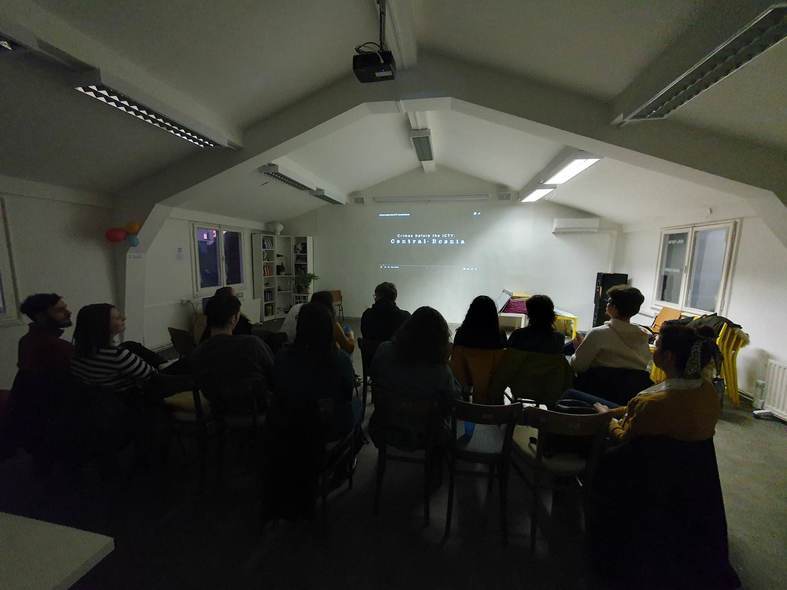Zagreb, March 17, 2023
We asked young people how informed they are about war crimes committed by members of the Croatian forces in our research "The Wartime 1990s from the Perspective of Young People in Croatia" conducted and published last year. 80.2% of them, when asked about the massacre in Ahmići, answered that they had not heard of that event. These devastating figures further encouraged us to organize a meeting for the members of our activist network dedicated to this very topic this year, one month before the 30th anniversary of war crimes in Ahmići, in order to inform them and jointly discuss the importance of responsibly dealing with the past and remembering all civilian victims.
We were pleasantly surprised that as many as fourteen young people responded to the event, held on Wednesday, March 15. Among them, there were those who had never heard anything about the crimes committed in Ahmići before.
In order to have an informed discussion about what has occurred in Ahmići, we decided to screen the documentary film "Crimes before the Tribunal: Central Bosnia" as part of the meeting. Through interviews with those involved in the proceedings and video footage of the trials, the film describes the discovery of the crimes, the Tribunal's investigations that followed, and the difficult path it took to establish the facts of what happened. In the Kordić and Čerkez case, it was established that the crimes in Ahmići were committed within the framework of an international armed conflict within which the Republic of Croatia exercised overall control over the military forces of the Croatian Defense Council (HVO). On April 16, 1993, members of the HVO and special units of the HVO military police, the so-called Jokers, killed 116 Bosniak civilians in Ahmići, of whom 11 were children and 32 were women.
After the movie, we debrief what we had seen. Through the discussion, many questions were raised, and the participants had the opportunity to learn from each other by listening to the comments of their peers, which concerned: a review of the Tribunal's work and contribution to the achievement of justice for the victims of the ICTY, crimes committed in Central Bosnia, public events that included speeches by the war criminals and the perception of war criminals in the public space, such as the lecture organized by Dario Kordić held in 2019 in the Student Dormitory Stjepan Radić. After one of the participants mentioned Kordić's lecture, we explained that the day after the event, YIHR published and sent an Open Letter to the director of the Student Dormitory, in which we condemn giving public space to convicted war criminals to address a wider audience.
Learning about the contribution of the work of the International Criminal Tribunal for the former Yugoslavia, which enabled the individualization of guilt, we recognized the importance of collective responsibility and the necessity for us, as young people, to contribute to the non-repetition of such crimes and have open conversations about the difficult aspects of our past.
We concluded that young people, the generation born after the war, should also know about these topics. They should be provided with a space where they can openly and critically discuss the matters of the past in order to raise awareness of the crimes committed in our name and contribute to building a better society based on truth and justice.
Project Think locally, be active! is implemented with the financing of the Central State Office for Demography and Youth.
